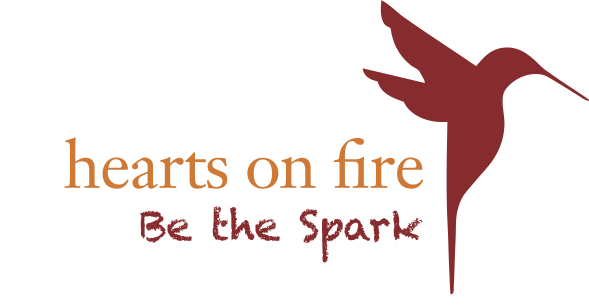Andeisha Farid | AFCECO
Andeisha's War
There is something about the enormity of Andeisha Farid’s early childhood deprivation in an Iranian refugee camp, lacking necessities of the most basic kind— clean water, sanitation, education, community—that is hard to fathom. But with the strength of their wisdom and love, Andeisha’s parents were able to move her to a Pakistani refugee camp, where conditions were better and where, despite being separated from her family, she managed to get an education.
“The camp was run by women who were liberated, passionate and committed to change,” recalls Andeisha. “There was a library, a theatre to watch movies, and a school for girls and boys. That was life-changing for me. I was sitting on a chair with a small desk. I had notebooks and textbooks to read! The women who ran the school inspired me to teach other women and help other kids.”
Looking ahead, Andeisha courageously charted the next chapter of her life. She wanted to find a way to give other Afghan children the chance to obtain an education in safe, clean, loving places.
Decades of political instability have taken a profound economic and social toll on Afghanistan. Just 28 percent of fifteen-year-olds can read or write.
A history of chaos and violence has led to a society where the average life expectancy is just forty-five years. Afghanistan has the second-highest infant mortality rate in the world and the second highest death rate.
Andeisha’s most painful memory is of losing her 12-year-old brother who was killed by Iranian border guards as her family was crossing back into Afghanistan, with the hope of resuming a peaceful life. But it was not yet to be.
“Gunfire broke out. The Iranian police were shooting wildly. My brother had been shot through the heart. I can’t tell you how hard it was for my mother.”
In 2003, after graduating from college in Pakistan, and working at a school for Afghan children in the capital, Islamabad, all of Andeisha’s past experiences and dreams converged into a bold plan. Motivated by love of her home country and her people, she established a safe house for twenty Afghan orphans, child laborers, and street children barely surviving in Islamabad.
“I said, ‘All I need to do is begin. If we educate these children, we will give them a chance to become teachers, engineers, doctors, and leaders. They might give back to their country what their country desperately needs.”
So began the Afghan Child Education and Care Organization.
More than a decade later, partnering with CharityHelp International, AFCECO now runs eleven orphanages in Afghanistan and refugee camps in Pakistan with 700 children of diverse ethnicities and has employed nearly 200 people who are mostly widows and university students.
‘Our children come from all over Afghanistan. We do more than feed and house them; we provide a good education. We teach them to embrace equality and to respect each other regardless of religion, gender, ethnicity or race. I am sure democracy, peace, and freedom will come to Afghanistan through these kids.”
In 2014, Andeisha learned of threats against her because of her work. Fearing for her life, she became Chairperson of AFCECO, delegating her role of Executive Director to a team of AFCECO graduates, who have the understanding and skills to carry on her mission.
"For me there is a practical remedy for the ignorance, hatred, and poverty so deeply imbedded in society: raise a new generation of girls and boys. To cure our war-stricken nation, we need to invest in children. The children are the ones that will make our future better.”
Watch
Take Action
Become an “instrument of hope” for the children of Afghanistan by helping to provide them with an environment of love, tolerance and respect for others.
Details at afceco.org




